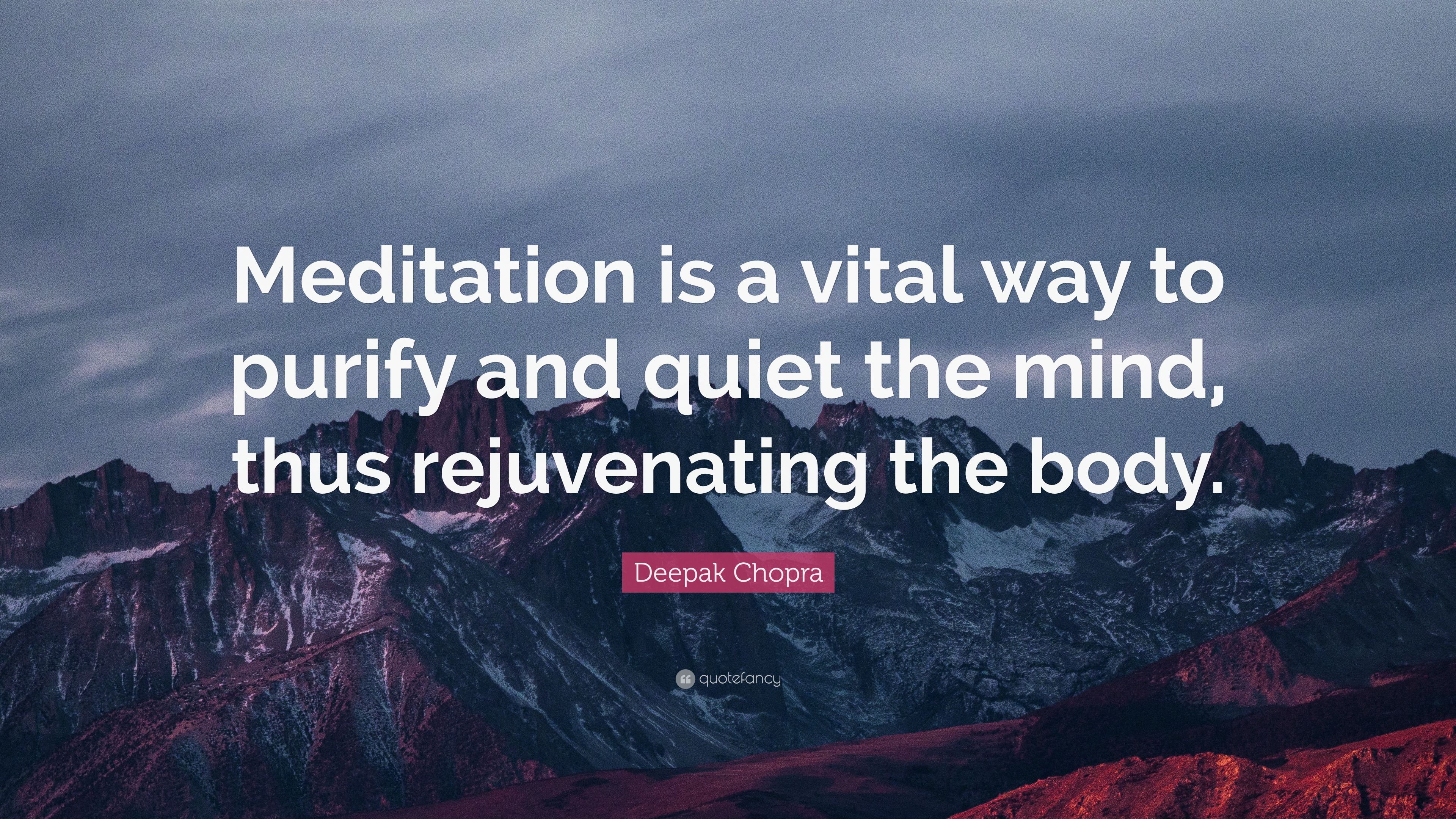Deepak Chopra M.D. is a pioneer in personal transformation and the author of Metahuman. More recently, he executive produced the documentary The Mindfulness Movement, launched a wellness podcast with his son Gotham Chopra called Now For Tomorrow, and released his new meditation platform Chopra App. Over a career that spans decades, the self-help guru has committed himself to a path to inner peace.
With the possibility of another full lockdown seeming more likely by the day, we spoke to Chopra about his annual week of silence — in which he ditches from the non-stop news cycle and reconnects with his physical self. It’s a practice he thinks all of us should partake in (assuming we have the time and resources, which not all do).
“After COVID is behind us, the vast majority of people will go back to the old way of living, until there is another crisis, because that is the way that most humans are programmed,” he says. “But there are some who will use this time to learn.”
Here is a look into Chopra’s practice in silence began, how he spends the days, and why it could be beneficial for you, even if you start with just 5 minutes per day.
So how does your “week of silence” start?
For forty years, every year, I have taken a week of silence. I have done it in the past with groups of people, but this year was special, because I did it alone.
I usually go to bed somewhere around 10 o’clock at night. Before that happens, I do a practice called Yoga Nidra, which is a meditation and form of body awareness. I then ask myself certain questions before falling asleep, things that I want to ponder. During that time I slowly pull away from the other senses, until I am in deep sleep, or what we call fundamental awareness.
I wake up at 6 am. I make sure to get eight hours of sleep, no matter what. When I awaken, I stay there lying in bed for a moment, waiting for the answers to the questions that I asked myself the night before. Then I write them down.
And at that point, you’re silent all day?
Once I am properly woken up, I start my meditation, which is usually one hour. Followed by yoga and reading for another hour. During this special week of silence though, I did two hours of meditation and then two hours of yoga and reading.
I am done with my full morning wellness routine by 10 in the morning or so. Then I will try to go on a walk, either by myself or with my wife, through the village. I take this time to breathe, take in the beautiful nature, and this Earth. I listen to the sounds of the world around me.

Let’s keep going through it bit by bit.
By noon I am having my main meal of the day, which is a diverse plant-based meal, with lots of probiotics. That is when I get the majority of my energy to use.
During the afternoon I relax at home. I don’t watch television. I don’t write or read during this time, which means more time to reflect and ask myself essential questions. Why do we exist? What is our reality and what do we really want? What is our purpose? Do we have a soul?
Simple stuff!
I will also walk around the house and look at some of the beautiful paintings I have gotten over the years. I have collected them for this very purpose, and I think it is important to surround you with things that bring you happiness or thought.
Then, in the evening, I do another mantra meditation with some breathing. I guess to some it might be considered a boring life, or a boring way to spend your day. But for me, it has become an important time. It takes a lot of practice, but it is very fun once you get into the flow.
In a way the experience of this week makes me feel sad, because I think of the way that people usually live, like biological robots. Sleepwalking our way to extinction with warfare, biological weapons, poisoning our food chain, and destroying our environment.
But I think there is also good that can come from this. I would be very happy if more people started meditating. For those, I say start off my taking five minutes every day just to sit quietly. The next time, take another five minutes and start to reflect. Start to ask yourself questions about your purpose, what makes you happy, and what you are grateful for.
Don’t try to know the answers, just experience the feelings you have and live the questions.
That’s like “Mindfulness 101”?
Then start a mantra-based practice like Transcendental Mediation or primordial sound. On our site, we have meditation courses for free. Meditation is useful for not just mental and physical healing, but also spiritual healing. The acceptance that the essential you is not what is born and dies, what is born and dies is a thought or perception or feeling. If I look at you and then I look away, the two images I have of you are different, in the rate that we change.
There is scientific research now that shows how the practice can prevent illness and getting sick during this time. I know that it helps me on a daily basis. I am totally at peace. I have no fear of death. I am very joyful.







